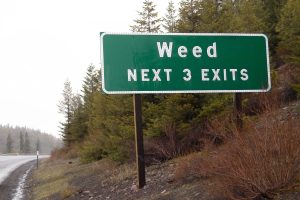California Cannabis: The Marijuana Manufacturing Rules (Part I)
A useful tutorial, with even more information to come.
 Last week, I wrote about the long-awaited release of California’s initial medical cannabis rules to regulate retailers, distributors, transporters, manufacturers, and cultivators. This is the first in what will be a series of posts regarding California’s new medical cannabis rules. I’m kicking things off with what you need to know to get a California cannabis manufacturing license. And if you want a deep dive on all of California’s initial licensing rules, join my firm and me on June 1 for a free webinar on this topic.
Last week, I wrote about the long-awaited release of California’s initial medical cannabis rules to regulate retailers, distributors, transporters, manufacturers, and cultivators. This is the first in what will be a series of posts regarding California’s new medical cannabis rules. I’m kicking things off with what you need to know to get a California cannabis manufacturing license. And if you want a deep dive on all of California’s initial licensing rules, join my firm and me on June 1 for a free webinar on this topic.
Though California’s Medical Cannabis Regulation and Safety Act (“MCRSA“) initially failed to specifically define the term “manufacturer,” California rectified this by issuing MCRSA manufacturing rules last Friday. Under these rules, “manufacturer” now means the production, preparation, propagation, or compounding of cannabis products, including extraction processes, infusion processes, the packaging or repackaging of manufactured medical cannabis or medical cannabis products, and labeling or relabeling the packages of manufactured medical cannabis or medical cannabis products. “Manufacturing” or “manufacturing operation” means all aspects of the extraction and/or infusion processes, including processing, preparing, holding, storing, packaging, or labeling of cannabis products. Manufacturing also includes any processing, preparing, holding, or storing of components and ingredients.
Thanks to these new draft rules, we now also know what nonvolatile and volatile solvents mean, which terms were previously undefined in the MCRSA. This is important because it will determine the California cannabis manufacturing license you will get. “Nonvolatile solvent” means any solvent used in the extraction process that is not a volatile solvent, including carbon dioxide. “Volatile solvent” means any solvent that is or produces a flammable gas or vapor that when present in the air in sufficient quantities will create explosive or ignitable mixtures. The state’s examples of volatile solvents include, butane, hexane, propane, and ethanol. A Type 6 cannabis manufacturing licensee can only use nonvolatile solvents, but a Type 7 licensee can use both nonvolatile and volatile solvents in its extractions and infusions.

Early Adopters Of Legal AI Gaining Competitive Edge In Marketplace
There are also additional manufacturing license types in the initial rules that weren’t included in the MCRSA. A “Type P” license is for entities that only package or repackage medical cannabis products or label or relabel the cannabis product container to go to retail. Entities that engage in packaging or labeling of their own product as part of the manufacturing process do not need to hold a separate Type P license. There is also a “Type N” license for manufacturers that produce edible products or topical products using infusion processes, or other types of medical cannabis products other than extracts or concentrates, and that do not conduct extractions. The Type P and Type N licenses are subject to the same restrictions as a Type 6 license.
Overall, only certain kinds of extractions are allowed for the manufacturing licensee. The state mandates the only cannabis manufacturing allowed is mechanical extraction, such as screens or presses; chemical extraction using a nonvolatile solvent such as a nonhydrocarbon-based or other solvent such as water, vegetable glycerin, vegetable oils, animal fats, or food-grade glycerin; chemical extraction using a professional closed loop CO2 gas extraction systems; chemical extraction using a volatile solvent; and any other method authorized by the state. All chemical extractions must take place within a professional, closed-loop system, which also has its own state law requirements. The rules also contain strict packaging and labeling requirements, require all personnel to be sufficiently trained, and mandate manufacturing licensees must ensure strict quality assurance processes and protocol, including for cannabis product recalls and complaints.
Importantly, the manufacturing rules also tell us what kinds of manufactured products can be on the market in addition to their potency limitations. California is not going to allow cannabis-infused alcohol, caffeine, or nicotine products and no cannabis product can be made of “potentially hazardous food.” Potentially hazardous food means any food “capable of supporting the growth of infectious or toxigenic microorganisms when held at temperatures above 41 degrees Fahrenheit.” Products that must be refrigerated at a temperature of less than 41 degrees and any dairy or meat products are also not allowed. Edibles cannot contain more than 10 milligrams of THC per serving or more than one hundred 100 milligrams of THC per package of finished product. And, for non-edible manufactured cannabis, no finished package can contain more than 1000 milligrams of THC.
Lastly, the initial licensing fee for a manufacturer license applicant is $1,000 for each application filed. Then the annual license fee is on a sliding scale based on the licensee’s annual gross revenue, starting at $2,000 if you’re making up to $100,000 on up to a $50,000 annual license fee if you’re making over $5 million yearly.
Sponsored

Is The Future Of Law Distributed? Lessons From The Tech Adoption Curve

Navigating Financial Success by Avoiding Common Pitfalls and Maximizing Firm Performance

The Business Case For AI At Your Law Firm


Is The Future Of Law Distributed? Lessons From The Tech Adoption Curve
California’s cannabis manufacturing rules closely track what has already been done in many other regulated cannabis states and even mirror some of the manufacturing regulations in the adult use states. And, though these are just the initial rules, I do not anticipate much change other than the probable addition of more prohibited products to the list of no-gos, such as other states have done when it comes to gummy bears or other products that may appeal to kids.
 Hilary Bricken is an attorney at Harris Bricken, PLLC in Seattle, and she chairs the firm’s Canna Law Group. Her practice consists of representing marijuana businesses of all sizes in multiple states on matters relating to licensing, corporate formation and contracts, commercial litigation, and intellectual property. Named one of the 100 most influential people in the cannabis industry in 2014, Hilary is also lead editor of the Canna Law Blog. You can reach her by email at hilary@harrisbricken.com.
Hilary Bricken is an attorney at Harris Bricken, PLLC in Seattle, and she chairs the firm’s Canna Law Group. Her practice consists of representing marijuana businesses of all sizes in multiple states on matters relating to licensing, corporate formation and contracts, commercial litigation, and intellectual property. Named one of the 100 most influential people in the cannabis industry in 2014, Hilary is also lead editor of the Canna Law Blog. You can reach her by email at hilary@harrisbricken.com.
Sponsored

Early Adopters Of Legal AI Gaining Competitive Edge In Marketplace








